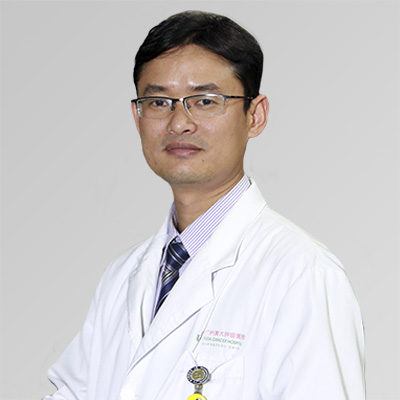“It was you who pulled me back from the coffin!”
These heartfelt words came from Mr. Zhang, a patient from Hong Kong once diagnosed with advanced nasopharyngeal carcinoma. The tumor in his body, initially as large as a tennis ball, raged on for three years and nearly pushed him to the brink of despair. Yet after undergoing six sessions of interventional therapy at Fuda Cancer Hospital in Guangzhou, the tumor shrank significantly. Facing the doctors and nurses of the Department of Internal Medicine III, he expressed his gratitude word by word.
This was a perilous road that lasted three years.
Three years ago, Mr. Zhang was diagnosed with nasopharyngeal carcinoma. He tried immunotherapy and persisted in taking Chinese herbal medicine, but the tumor continued to progress relentlessly. Soon, he developed difficulty swallowing, hearing loss, blurred vision, severe headaches, and lost nearly 10 kilograms in weight. “At that time, I felt like I was just waiting to die,” he recalled. “Every day I woke up, I didn’t know if I would still see the sun tomorrow.”
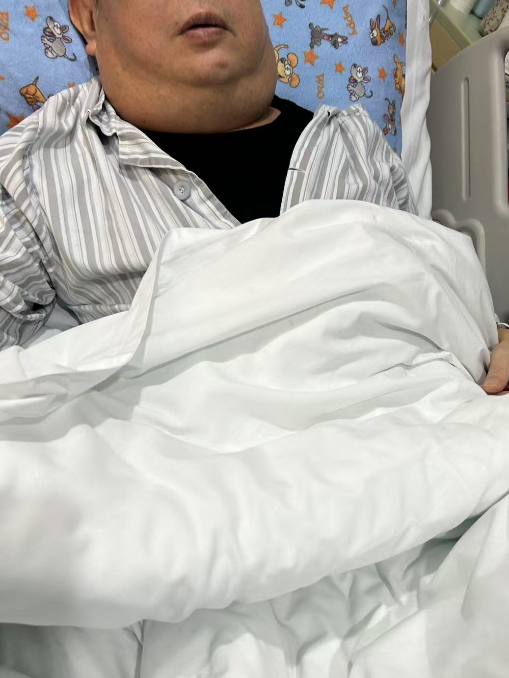
The turning point came at Fuda Cancer Hospital in Guangzhou.
After a comprehensive assessment, the medical team customized an interventional therapy plan for him. After two sessions, the tumor had shrunk by nearly half; after six, it was effectively controlled. His vision, hearing, and swallowing function gradually recovered, his weight returned, the pain subsided, and even his appearance was restored. “When relatives and friends saw me again, they said it was like witnessing a resurrection.”
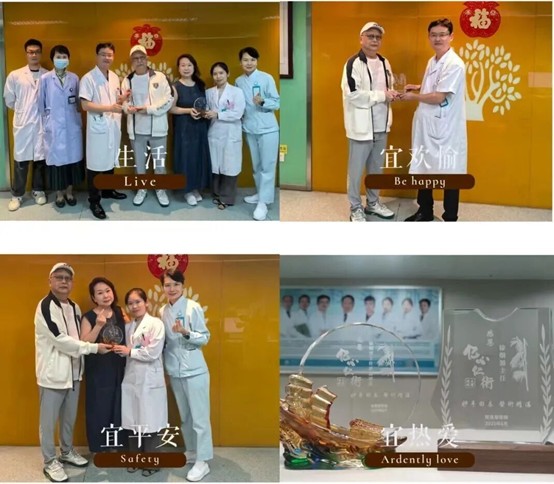
△ Mr. Zhang and his family presented two crystal plaques engraved with “Benevolence and Superb Skill, Reviving Hands, Outstanding Medical Expertise” to express their gratitude.
Currently, Mr. Zhang is in the phase of immunotherapy consolidation and is recovering well. In his view, his “escape from death” came down to three key things:
Maintaining a positive mindset. Even at his lowest point, he told himself not to give up. “Your mindset is the weapon in a patient’s hands,” he said.
Finding the right doctors and the right plan. “Not all treatments suit everyone. I’m fortunate I met a medical team here who truly understands me.”
Completely changing his lifestyle. Once a heavy smoker and drinker, especially fond of strong liquor, he now avoids both. “The doctors pulled me out of the coffin, but this is not the end. How long I live from now on depends on my cooperation, regular check-ups, and follow-ups.”
What touched him most was that the staff treated him “like family.”
Compared to the cold remarks of “you’re doomed” he had heard at other hospitals, Fuda’s medical staff always gave him warmth and hope. His wife also built sister-like bonds with the nurses. This sense of a “home-like hospital” became his softest yet strongest support on the road to recovery.
During this year’s Dragon Boat Festival, Mr. Zhang and his wife made rice dumplings, mung bean cakes, and colorful bracelets together with the staff. Amidst the laughter, he felt a sudden sense of disbelief: just a few months earlier, he had hovered on the edge of life and death; now, he was holding a five-colored bracelet full of blessings, surrounded by “angels in white” he regarded as family.
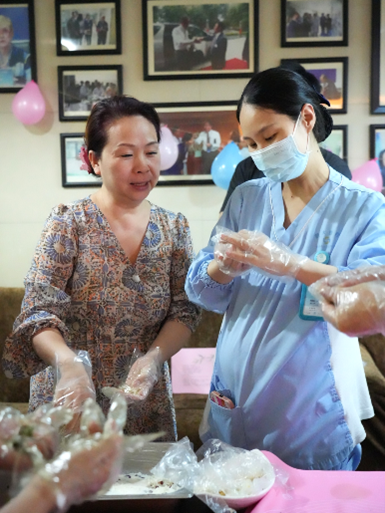
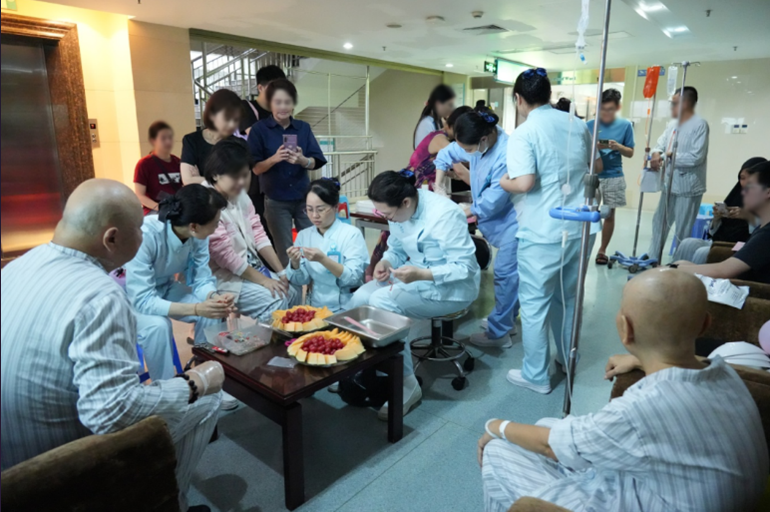
△Dragon Boat Festival Celebration
Today, Mr. Zhang has begun to replan his life. Every day feels like a precious gift; every breath is filled with gratitude. “I thank the hospital for giving me a second chance at life. If I hadn’t come to Fuda, I might have died several times already.”
To all who are still battling illness, he wants to say: Life is fragile, yet incredibly resilient. Never give up hope. Find the right medical team, keep a positive mindset, and combine scientific treatment with humanistic care — it truly can allow life to rewrite its ending.

